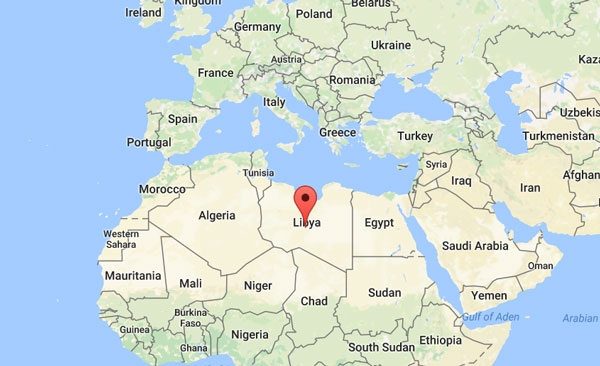
Tripoli, Libya | AFP | Roads in conflict-riddled Libya, where petrol is cheaper than mineral water, rank among the deadliest in the world.
Disregard for traffic rules, a dilapidated infrastructure and cars that fail to meet safety standards combine to make road accidents in Libya more lethal than incidents involving weapons.
In Tariq al-Siqqa, a public park in central Tripoli, hundreds of car wrecks are stacked up on top of each other as testimony of the carnage.
Some vehicles still carry blood stains, others have shreds of clothing or a shoe left lying inside.
The interior ministry’s traffic department recorded 4,115 road accidents across the country in 2018, killing 2,500 people and injuring more than 3,000 others.
“Libya holds the (world) record for the number of deadly road accidents per capita,” said department spokesman Colonel Abdelnasser Ellafi.
Last year’s road deaths outranked the hundreds of people killed annually in clashes between rival armed groups since Libya’s 2011 revolt that toppled dictator Moamer Kadhafi.
Speeding is the number one cause of accidents in Libya — a country of just over six million people and more than 4.5 million vehicles, according to the department.
With a litre of petrol, which is subsidised by the government, costing only 0.15 dinars (around 10 US cents), less than the price of a litre of mineral water, gas-guzzlers are all the rage.
Some of Libya’s dilapidated roads, however, “have not been repaired in 60 years”, said traffic department head General Mohamad Hadiya, making them totally unsuitable.
In Tripoli — home to two million inhabitants — the number of privately-owned cars has almost quadrupled in nearly a decade, jumping from 600,000 in 2010 to two million this year.
Together with state-owned vehicles, taxis and public transport, the number rises to three million in the capital alone.
– ‘No respect for traffic cops’ –
Car salesmen have also flooded the market with imported cheap vehicles which are mostly used cars and lack basic safety measures such as seatbelts or airbags, officials say.
In a bid to fight back, the authorities in February passed a law banning the import of cars older than 10 years.
And for the first time in years, the government has set aside funds in its 2019 budget to repair the country’s roads.
“The roads are systematically flooded after rain and bridges are unusable and need urgent maintenance work,” said Ellafi.
His department has also launched campaigns to raise awareness among motorists about traffic laws and deploy patrols to catch traffic violators.
But with the country thrown into anarchy and awash with weapons since 2011, the patrols keep a low profile to avoid reprisals from angry motorists.
They mostly just direct traffic on the congested roads.
“Young people have no respect for traffic cops because they know they won’t be punished,” said motorist Ahmad Rajab, as he stepped out of his 4X4 in Martyrs’ Square.
“But we should not only blame drivers,” the 35-year-old said, pointing to the state of the roads as well as the lack of road signs and traffic lights.
Rajab himself was injured in a road accident, which has left him with a limp.
“I was driving at night along an unlit road east of Tripoli and I hit a pole that was lying across the road,” he said.
“Road accidents have become silent killers that have claimed many lives in Libya.”
 The Independent Uganda: You get the Truth we Pay the Price
The Independent Uganda: You get the Truth we Pay the Price



